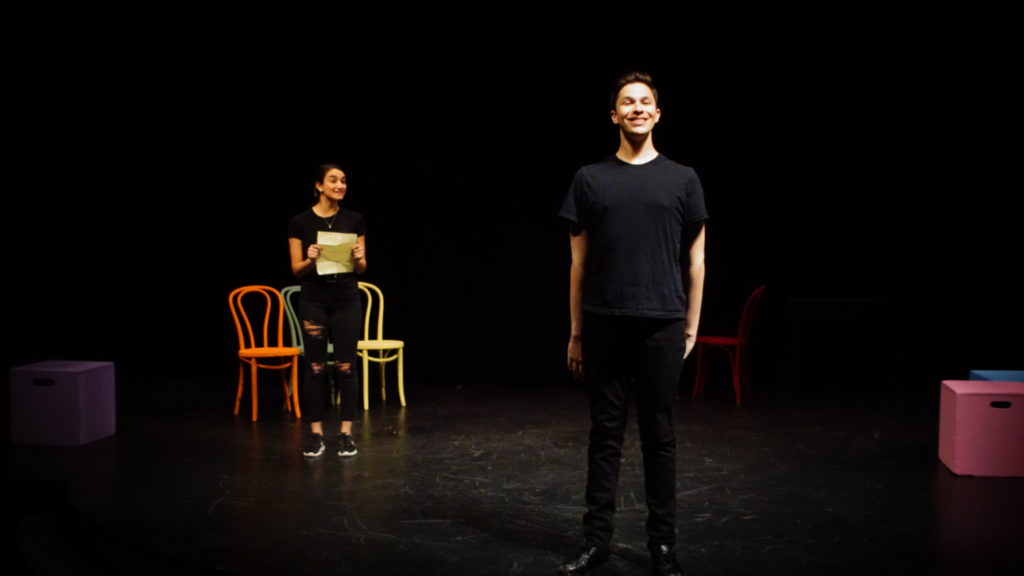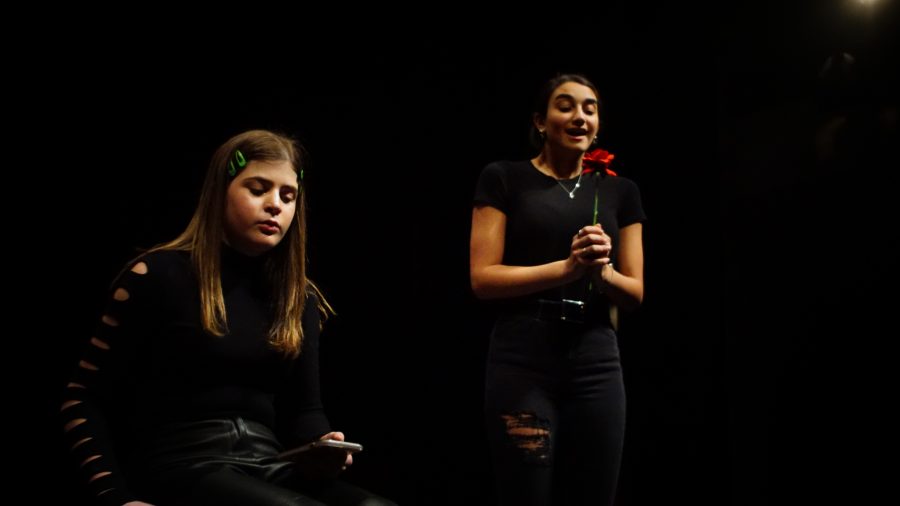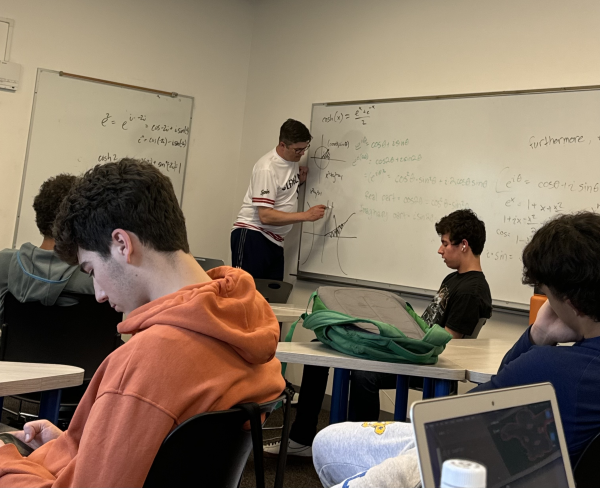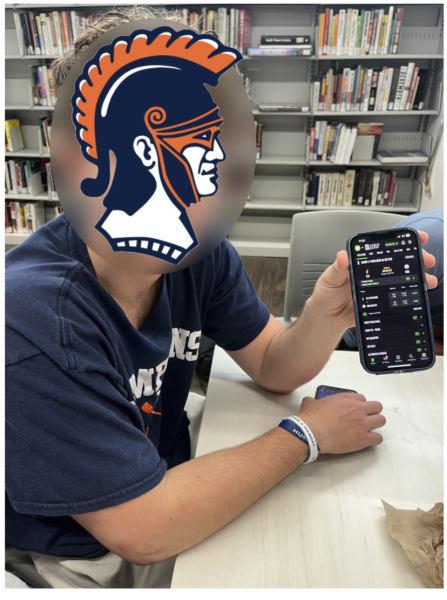What Makes Student-Run Plays Important?
May 1, 2019
Angela Gil
/wp:paragraph wp:paragraphSchool productions combine two of the things Latin students love best: Being entertained and supporting their friends. Student-runs are no exception– and they may be the best example of it. Why are they so important to the student body? How do they strengthen Latin’s community?
/wp:paragraph wp:paragraphThe student-runs this year were directed by Alyssa Brown, Olivia Patinkin (Love and Information), and Julian Lee-Zacheis (Her Requiem). Student-runs are plays that are directed, managed, and performed all through the work of students. The performances happened in April and were, without a doubt, tremendously successful.
/wp:paragraph wp:paragraphThe student-run experience for actors makes Latin more welcoming, and builds lasting friendships. Student-runs “foster a sense of community within the students,” said Maya Gray, an actor in Her Requiem. “Student-runs are the reason I feel like I belong in this school.”
/wp:paragraph wp:paragraphFrances Hutchinson, or Mirtis from Her Requiem, said “student-runs are a great way to learn from your peers, and for seniors to have experience leading others mostly on their own. It’s also,” she added, “a super fun way to make friends.”
/wp:paragraph wp:paragraphHailey Hurd, from the production of Love and Information, made a powerful comparison, stating that “the cast and crew have become a sort of family… and even now that we’re not spending every afternoon together, passing by each other in the halls feels like seeing an older sister or brother.”
/wp:paragraph wp:image {“id”:9847}
Julian shared that they’ve “taken away so many incredible experiences with the most amazing cast and crew, who have been so wonderful and interesting and, honestly, just a joy to be around. I made and improved friendships that I will treasure for quite some time.”
/wp:paragraph wp:paragraphStudent-runs also benefit those that have the opportunity to watch from the audience include supporting those in the productions and being inspired by their peers’ achievements. Summer Abraham said, “I enjoy student runs because so many people get involved with them, and it is so much fun to see everyone’s hard work pay off at the end.”
/wp:paragraph wp:paragraphThis was a sentiment felt by others as well, like Sebastian Valenzuela who said, “Student run productions allow Latin students an opportunity to watch the fruit of their friends’ labor.” He stated that they strengthen the community and give Latin students a way to support each other in their endeavours.
/wp:paragraph wp:paragraph“The reason I watch them is because it makes me so incredibly proud to see what my peers are capable of,” said Sehar Dey-Kohli. She believes that student-runs help instill “self-expression and self-direction” because “it gives them the power to create and tell stories on their own, how they want to.”
/wp:paragraph wp:paragraphMac Wolf agrees, saying that they “allow bright and talented seniors to express themselves without restrictions,” and they give kids the chance “to make important points about society.” This was evident in this year’s student-runs, as Love and Information had a strong message about, as the name suggests, love and the nature of relationships in the modern world.
/wp:paragraph wp:paragraphOne of the many reasons Julian chose the script for Her Requiem as their student-run was that they “really appreciated some of the themes, like the way we dehumanize people doing amazing things or the way obsession can be toxic.” Student-runs are a way to explore and share ideas through art and speech, not unlike The Forum.
/wp:paragraph wp:paragraphJulian Lee-Zacheis explained that, although the theatre department’s main goal with student-runs is to give students an opportunity to direct and explore everything that goes into making a production, they also “provide some really wonderful opportunities for the school as a whole.” Julian also shared that main stage shows tend to require large casts, and “student-runs make it possible to do these shows with a small cast, which are often more experimental.” Since Latin students tend to have such busy schedules, having a smaller cast allows for more flexible rehearsal times, making student-runs perfect for people that are trying to get into theatre while doing sports and other after-school activities. Julian developed an interest in storefront-style theatre after working in the Loggia previously, and they feel “honored to be able to bring this style to the community.” However, it wasn’t an easy commitment. “It’s more work than you think it will be, and you have to be ready for the incredible investment, not just in terms of time or effort, but also emotional. This production has seen me at my lowest, highest, most stressed, and most completely exhausted.” Despite all that, Julian said they would “absolutely recommend doing a student-run to next year’s seniors, especially those who’ve only ever acted,” because, among other things, “it gives a really good sense of the larger picture of what goes into a production.”
/wp:paragraph wp:paragraphThe turn out for the two student-run productions was astounding. The support the cast and directors felt emanating from the audience was what made all the hard work worth it. To continue supporting your fellow classmates in their performing-arts endeavors, go to the Dance Show, on May 2 & 3.
/wp:paragraph wp:paragraph/wp:paragraph ]]>




















































Robert!! :) • May 3, 2019 at 5:49 am
Student-runs are such an amazing opportunity and they always turn out so well!! Hailey’s comment on family is so heartwarming to read!! Wonderfully great article, Angela!!! 🙂 🙂